
Lionesses to return to Bramall Lane for the first time since historic Euros win
Young fans will get to see their footballing heroes on Tuesday night, when women’s football returns to Sheffield.
England welcome Euro 2025 hosts Switzerland to Bramall Lane, their final international friendly match this year.
It is their first time playing in the city since 2022, when they won the women’s European Championships.
Bramall Lane hosted four matches at that year’s tournament, including The Lionesses memorable 4-0 semi final win against Sweden.
Dave McCarthy, Head of Operations at Sheffield United, said the club is very excited for the Lionesses’ return and is expecting close to a sell-out.
He said that more international fixtures should be played throughout the country, as it will help inspire the next generation of footballers.
He said: “It gives young girls who play football, or who might be wanting to get involved in playing football, a chance to see the elite in front of a big attendance.”

Mr McCarthy hopes there will be many first time watchers of women’s international football on the night and hopes they will want to support their local team after seeing how exciting women’s football is.
Ahead of the fixture, head coach Sarina Wiegman, said that while it will be nice to return to the stadium which produced such a memorable moment, The Lionesses are focussed on pushing forward next year.
She said: "Our full focus is now on our next chapter as a team."
The Lionesses will first face the USA at Wembley stadium tomorrow night, before travelling to Bramall Lane for Tuesday's match.

Tramlines festival hit record ticket sales after their most requested headliners are revealed
Tramlines tickets went on sale today at 12pm, with tier four weekend and weekend VIP selling out in less than ten minutes.
The first wave of the much anticipated line-up was revealed on Monday, and fans described it as incredible. The line-up features many local artists, with the headliners being "three of the most requested bands ever".
Headlining Friday night's mainstage will be Sheffield's very own Pulp. Formed in 1978, the band frequently played in many well known venues around the city including The Leadmill. However, this will only be the fourth time that the band have played in their hometown since the year 2000.
Fresh from their sell out homecoming show at Clifton Park in Rotherham, Saturday night of Sheffield's biggest party will be headlined by The Reytons.
The festival's grand finale on the Sunday will be headlined by Brit acclaimed indie-rock band Kasabian.
Over 30 more acts have also been revealed, including Franz Ferdinand, Rizzle Kicks, Jake Bugg, Natasha Bedingfield, The Last Dinner Party, Sigrid, CMAT, Scouting For Girls, The Sherlocks, and of course, The Everley Pregnant Brothers.
Alex Deadman, Tramlines PR manager, shared his excitement, saying that "the celebration of local talent will be at the forefront" of this year's festival.
Tramlines festival will take over Hillsborough Park from 25-27 July for it's 16th year.

No lights, no problem: Sheffield Christmas Market still one of the best in the UK
Despite the festive lights switch-on being cancelled for a second-consecutive year, Sheffield’s Christmas Market has still received plaudits in an online feature by The Independent.
Construction work in Fargate raised safety concerns for large crowds gathering in the city centre, and so the annual event was cancelled.
The festive market still received praise in the listing, which said: "Over 60 log cabins feature all the clothing, trinkets, crafts and stocking fillers you can lay your hands on, while three Alpine Bars, a traditional German sausage grill and many other food and drink experiences mean you won’t go hungry while browsing."
Santa's Grotto and the "new-for-2024 illuminated helter skelter" were also highlighted.
The market is named alongside those in other major UK cities, such as London, Birmingham and Edinburgh.
Sheffield City Council said: “We're proud to showcase lots of lovely local, independent sellers across more than 60 log cabins stretching from Town Hall Square to the bottom of The Moor.”
The market hosts a variety of independent traders, with 80% being local businesses.
Derek Hawkins from Hawkins Distillery shared that this was the business’ second year trading at Sheffield Christmas Market.
He said some stalls that have been trading for many years feel footfall is down due to the works in Fargate, but are generally positive about trade.
He said: “It is just getting progressively busier, which is great.”
Lenka from The Yorkshire Print Company said the market wouldn’t be the same without local traders.
She said: “It’s great to bring a little bit of Yorkshire to Yorkshire people, it’s the way it should be.”
Francesca, a trader at Beauty Scents Candles, said: “If you see that in the paper and you live a bit further away, you’ll think ‘why wouldn’t I have a day out in Sheffield?’ I think it’s great for the market.”
The Market will be open until Christmas Eve, from 10am every day.

Leafcutter John’s new set pays tribute to the Peak District
A Sheffield based electronic musician, Leafcutter John, is due to premier his set ‘Sounds of Now: Gritstone Turntables’, as a love letter to the Peak District
John is an experimental musician and instrumentalist known for his unique ways of music production. His new set ‘Sounds of Now: Gritstone Turntables’ dives into music made with gritstones and rocks on a home-made turntable.
The event is due to take place at The Crucible Playhouse on Saturday, 30 November organised by Music in The Round. Event organiser Benjamin Tassie, has worked with John to put this performance together. He believes that the layout of the theatre “keeps you so close to the process of making music, it's exhilarating.”
Benjamin took the opportunity to organise the event with John when he found out about its strong connection with Sheffield, since the city is also home to industrial music.
He said: “John's new work is really of Sheffield and the Peaks. I think all 'Sheffielders' have a strong connection to the Peak District; it's an extraordinary landscape to have on our doorstep.”
Although he was born in Yorkshire, Leafcutter John has spent 25 years of his life in London, where you “never see the horizon” before moving to Sheffield.

He said: “When I first drove to the Peak District, it felt amazing, like my whole body was vibrating.”
Along with being a musician, and programmer, John is also a climber. This is where the idea first struck. He said that as you move your feet to climb on the gritstone, it makes the sound of a record. He then went on to sync his passion for music with that for climbing, and made a quadruple turntable.
The idea behind making the turntable is to have some gritstones from the peaks spinning on the table and listen to the texture. He has also used on-scene footage, and developed different software to make the experience more immersive and one with nature. So, as the colours of the visuals change, so do the sounds of the synthesizer.
‘Sounds of Now’ uses the raw grits and harsh texture of the rock, mixed with electronic music, to create a refined version of instrumental experimentation.
The show on Saturday is aimed to show how small of a part humans play in nature, one which leaves the audience with “a grand yet human experience.”
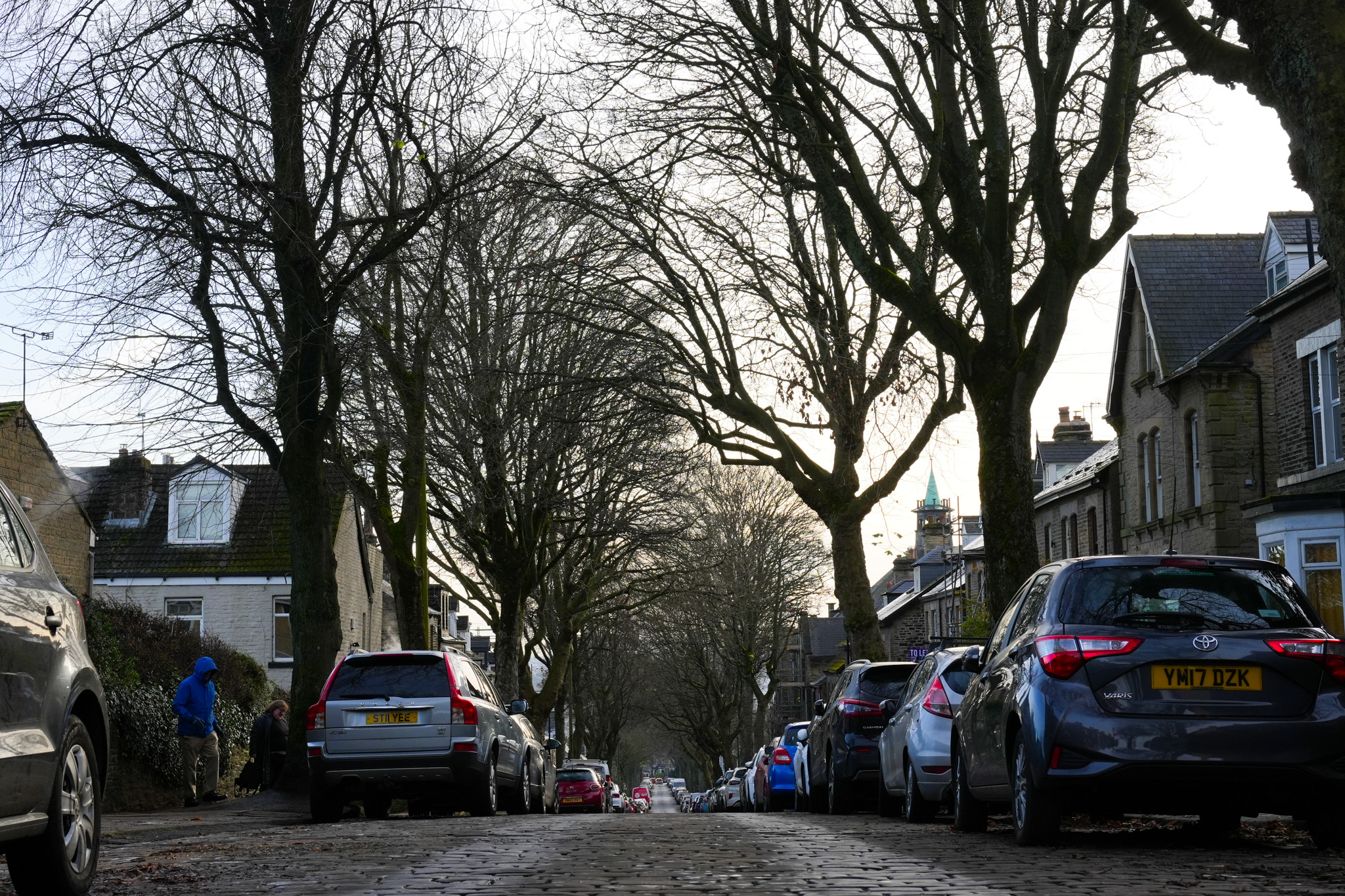
Urban Tree Festival honours Sheffield’s green champions
An annual festival to celebrate the street trees of Sheffield is underway this week to highlight the “enormous value” they bring to the UK's greenest city.
From forest bathing and haiku writing, to tree planting and family fun days, over a dozen free events have been taking place as part of the Urban Tree Festival, which runs until December 1.
Nik Baker, manager of the Sheffield Street Tree Partnership which has organised the event, said she hopes the diverse range of activities will raise awareness of the benefits urban trees have in reducing pollution and boosting mental health.
She said: “As humans, it can increase stress levels when we're just surrounded by concrete without any contact with nature. In terms of the health benefits that street trees can provide people, they have an enormous value to us as a society.”
Up to 500 people are expected to attend events for the festival across the week.
The packed programme included a guided walk by Paul Selby from Nether Edge and Sharrow Sustainable Transformation, who raised over £200,000 to install 301 new street trees in the community over four years.
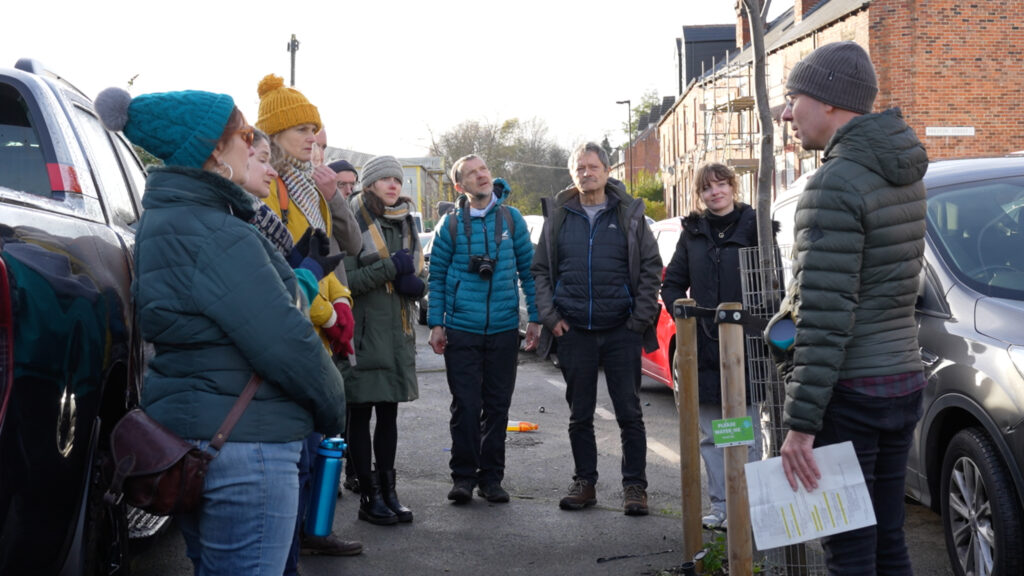
Sharon Farley, 55, who lives on Bramall Lane, attended the walk. She said: “Coming out and doing this as a community activity has been really wonderful. It’s great to find out things about the area that I live in and meet some really lovely and dedicated people.”
Among the events still to take place this weekend is an urban tree sketching workshop in the city centre, led by Meersbrook-based artist Mikk Murray.
Mr Murray, whose artwork is based around ancient woodlands and trees, explained he wanted to host the workshop in the heart of the city to show people that nature is all around us.
He said: “When we’re walking through the city centre, we're distracted by too many other things. There's adverts and shops. I don't think we often notice that we have trees and pockets of nature and wildlife.
“When people come to my drawing workshops, I want them to connect to the urban trees and the environment so that they then start thinking about it more and want to change other things in their lives.”
The Sheffield Street Tree Partnership is a coalition of organisations set up in 2019 in the wake of protests to stop the felling of thousands of trees across Sheffield.
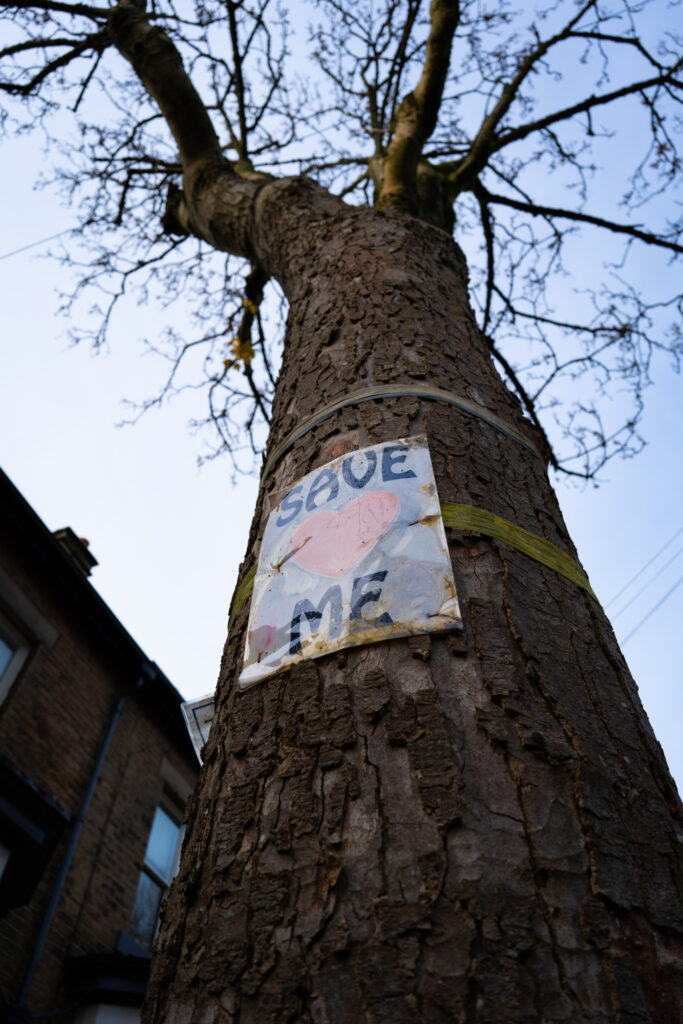
So far they have recruited 30 volunteer street tree wardens to monitor the health of trees in the city, and hope that the festival will encourage more people to sign up.
A full list of events scheduled to take place over the weekend can be found here.
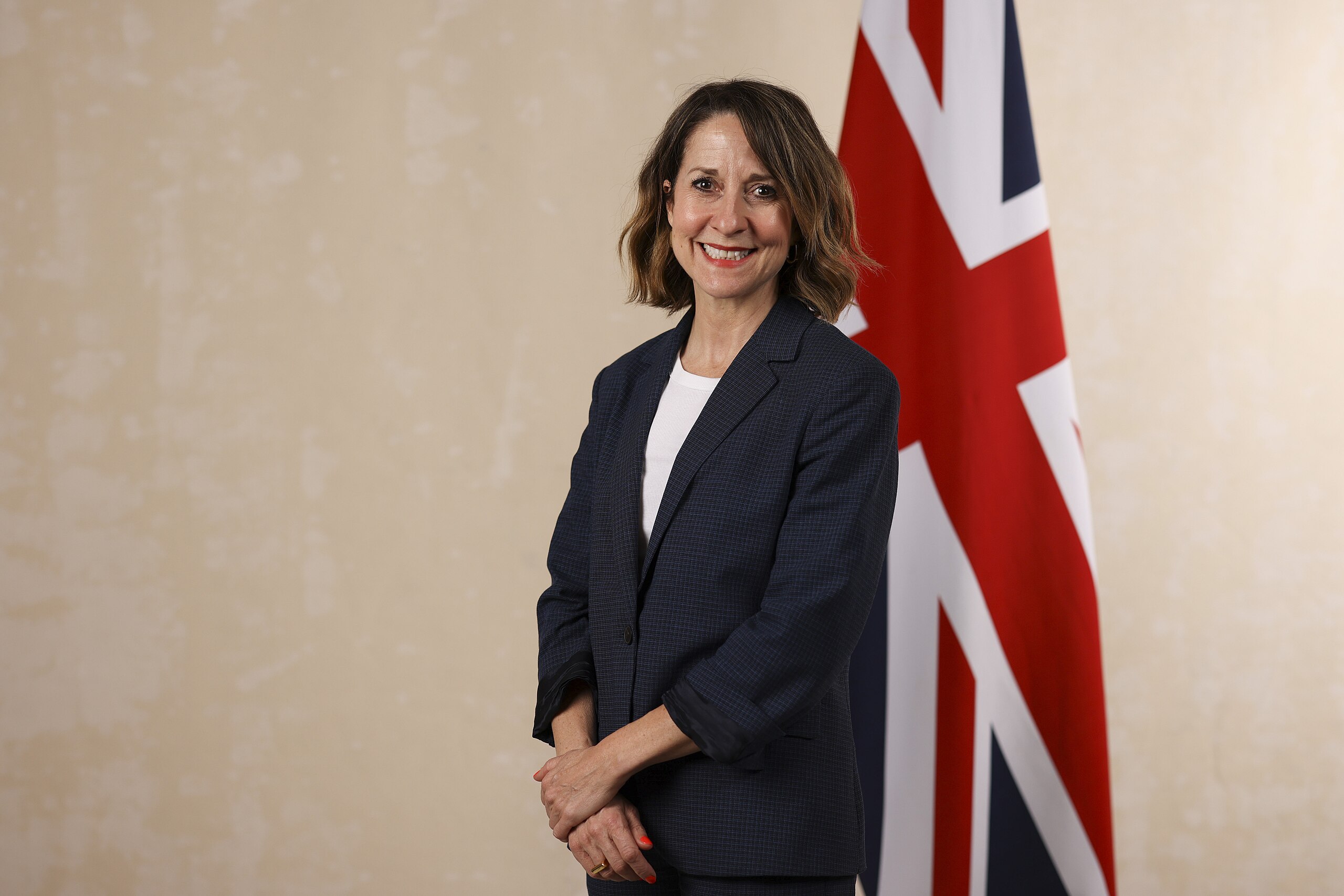
Sheffield charities condemn Liz Kendall’s benefits reforms that could “endanger” young people
Local charities have criticised Liz Kendall’s plans to get young people off benefits and back to work, claiming that they could put some "in a highly vulnerable position and open to exploitation".
The Secretary of State for Work and Pensions announced the Get Britain Working White Paper on Tuesday.
Its ambitious aims include transforming the job centre system, reducing the number of people out of work due to long-term sickness, and delivering a guarantee that every young person will have access to education or training to help them find a job.
Ms Kendall also confirmed, in an interview on Sky News' Sunday Morning with Trevor Phillips, that: “If people repeatedly refuse to take up the training or work responsibilities, there will be sanctions on their benefits.”
Prominent Sheffield voices have taken issue with the proposals and accompanying comments.
Kirsty Sandamas, Communications and Business Development Manager at Sheffield Futures, said: “If the Government do go ahead with the proposal to stop benefit support to young people, they are leaving them without the means to provide the most basic needs for themselves, putting them in a highly vulnerable position and open to exploitation.
“This approach will not encourage young people into work; at best, it will further disenfranchise them; at worst, it will endanger them.”
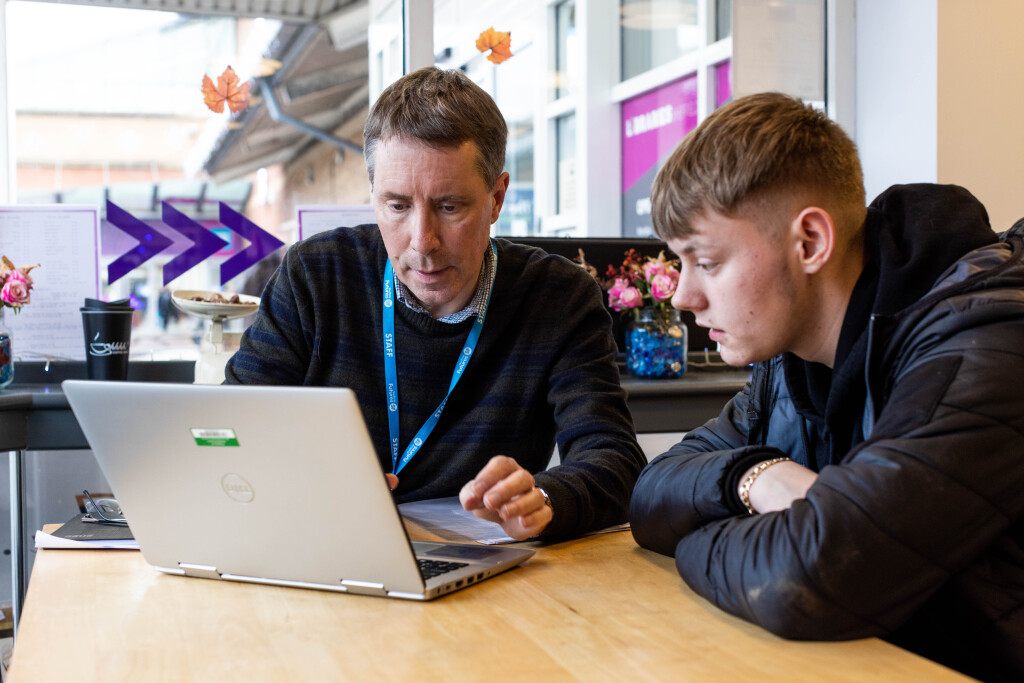
On the BBC's Sunday with Laura Kuenssberg, Kendall also suggested that people with “self-diagnosed” mental health problems have contributed to the rise in benefit claimants.
Margaret Lewis, CEO of Sheffield Mind, said: “Linking ‘self-diagnosis’ and the claiming of benefits is not helpful.
“The media, or other people’s views, can make it feel like there’s a stigma attached to claiming benefits and this can lead to people with mental health issues feeling like the whole benefits system isn’t designed to meet their needs.”
Ms Sandamas of Sheffield Futures added that some people are forced into self-diagnosis due to long waiting times for a diagnosis through the NHS : “It is harmful to suggest that young people are doing this in order to claim benefits without recognising that the long waiting times are prolonging, and often detrimental to, a young person’s opportunity to get appropriate support for their mental health.”

Record number of young people on waiting lists as Sheffield scout group copes with volunteer shortage
A Scouts group leader in Sheffield is resorting to delivering online activities for young people, as the UK’s waiting lists for volunteer-led group activities reach record numbers.
Mr Dean Maragh, a Scouts leader and trustee of the 35th Sheffield (St Oswalds) Scouts group, said he has had to close sections of the group to accommodate for lack of supervision of young people.
Mr Maragh said that there are over 100 people on the waiting list for his group and less than 90 spaces.
Those waiting will be offered online materials on topics the scouts groups would usually cover.
A reported 107,000 young people nationwide are left on waiting lists for Scouts groups, leading to widespread appeals for adults to volunteer.
When asked whether fundraising was an issue, Mr Maragh said: ‘ you could give me a million pounds tomorrow; it won’t enable me to offer more scouting opportunities’.
Mr Maragh is a university lecturer at Sheffield Hallam, and some of his students conducted a study from which they learned that many adults don’t know what Scouting is, or don’t have an understanding of the roles or benefits of volunteering.
The students also found that volunteers generally experience a feeling of burnout, due to workload issues and lack of time to dedicate to their chosen group.
Mr Maragh suggested that typically, 50% of volunteers usually are parents of the children.
While volunteers all have different reasons for volunteering, studies have shown most will only dedicate 1-3 years of their time to volunteering, often leaving when their own children move on from volunteer lead clubs.
St Oswalds Scouts group is putting time into balancing the lack of volunteers but says it is ‘not typical’ for all groups, and that some are at risk of closure.

Sheffield students raise over £60,000 for ‘Movember’
Students from the University of Sheffield have raised £60,757 this month for the ‘Movember’ campaign to awareness for men’s health issues.
‘Movember’ is a fundraiser that takes place every November, where individuals grow moustaches, but the Sheffield students went beyond this by taking on challenges and organising events.
Engineer’s Rugby raised over £10,000 completing a 12-hour-long rugby match and a 100k bike ride.
Finn Harrison, 20, member and Movember Ambassador said: ‘You need to play well together on the pitch, but you don’t often think about off the pitch and if someone is struggling, it is their teammates responsibility to help them out.”
Another standout event was a fashion show organised by the Sports Committee, bringing together different teams to raise £1,500.
The charity and volunteering lead, Josh Osborne, 21, explained how men’s health is so often forgotten about and that they wanted to raise money by “doing something different and something massive.”

Photo Credit: Manthila Ranatunga
The University of Sheffield has raised the fifth highest amount of money out of all UK universities.
However, it is not just about the money but the conversations it leads to.
Anne-Cecile Berthier, Country Director at Movember said: “Movember on campus encourages improved wellbeing and motivates them to check on a mate that may be struggling.”
UoS Movember Ambassador Gareth Lee, 21, explained how being apart of a sports team is the best part of his university experience but they can be full of peer pressure and toxicity.
Finn Harrison said: “Everyone feels a part of something bigger than themselves, this does a lot for people’s mental health.”
“I’d prefer 10 times more people to just raise £10 than one person raise £3,000 just by themselves.”
They are still pushing to raise more money and are taking donations until the 9th of December.
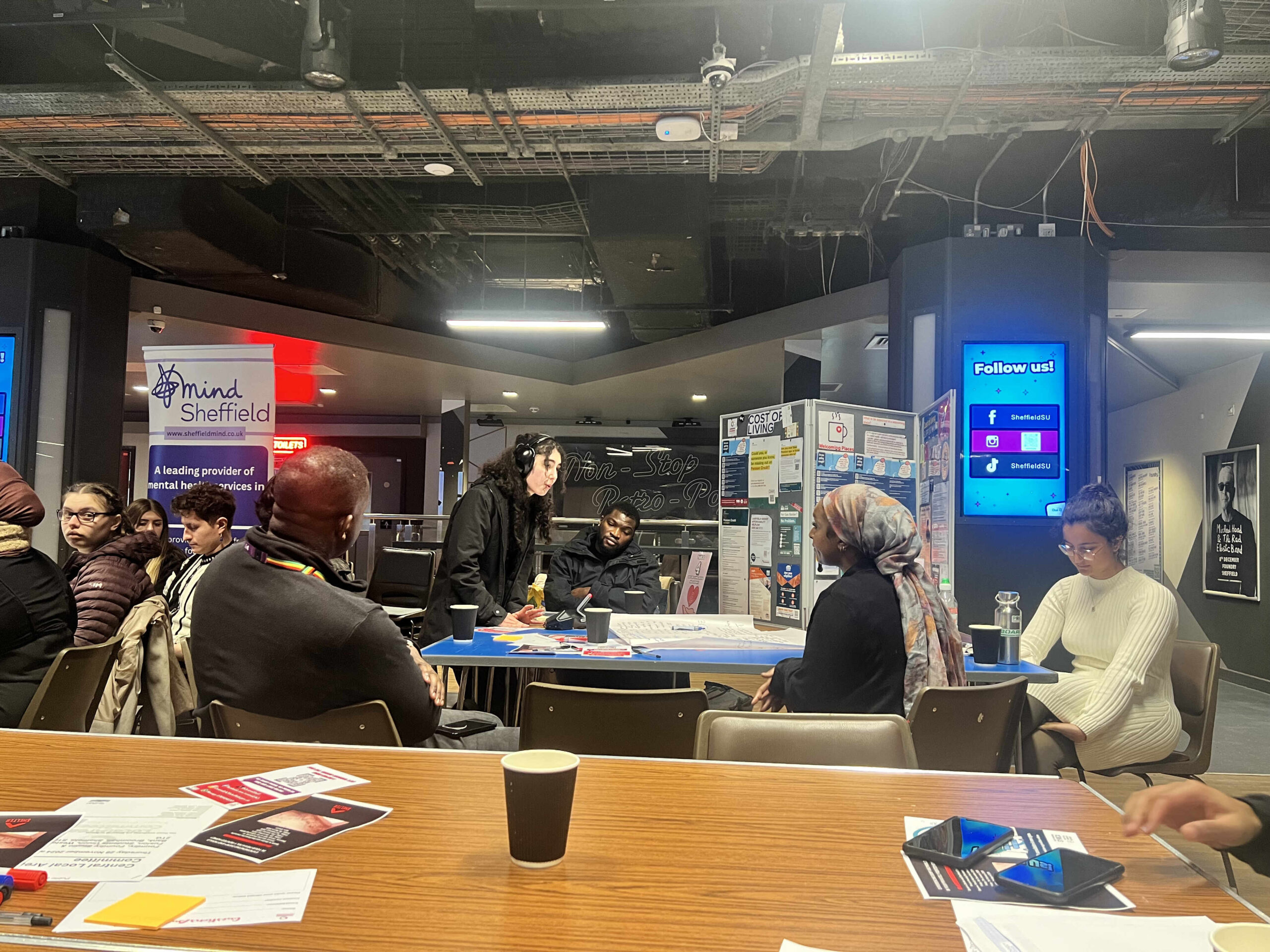
Students express concerns over Sheffield’s bus system
‘Sheffield’s buses aren’t helping students get to and from university,’ was the key message voiced at a council meeting yesterday.
Councillors met with students at a Local Area Committee meeting at University of Sheffield’s Student’s Union building to discuss issues that affected them.
El, a student at the University of Sheffield said: “The buses aren’t a great option for students at the moment. They don’t work for anyone, and feel like ‘pay more, get less’.”
Several students said buses were difficult to access because of a lack of a centralised bus pass, and that fares were too high for students who would be taking the bus daily.
Students at the meeting also unanimously agreed that the buses should be in the hands of SYMCA and not privately owned companies, as they would be prioritising comfort and convenience over profit.
“The price that we pay [for bus tickets] could be justified if it was invested back into South Yorkshire,” said one student frustrated by the high price point of tickets.
The meeting also discussed nightlife safety for female students, safety apps and transparency around hiring bouncers.
Flo Rushton, a student at the University of Sheffield, said: “The lack of transparency around how bouncers are hired makes us feel unsafe and uncomfortable.”
International students also raised concerns about job opportunities, training resources and events, as well as a lack of representation in discussions around cost of living and accommodation.
Stalls from the South Yorkshire Police, 1625 Outreach and South Yorkshire Mayoral Combined Authority (SYMCA) were also set up to provide students and local community members with information about their services.
The LAC concluded with Cllr Brian Holmshaw promising to take the feedback collected to all the relevant stakeholders. He added that the next meeting will be on 25 February, 2025, in Hillsborough, and the topic will be Food Growing.
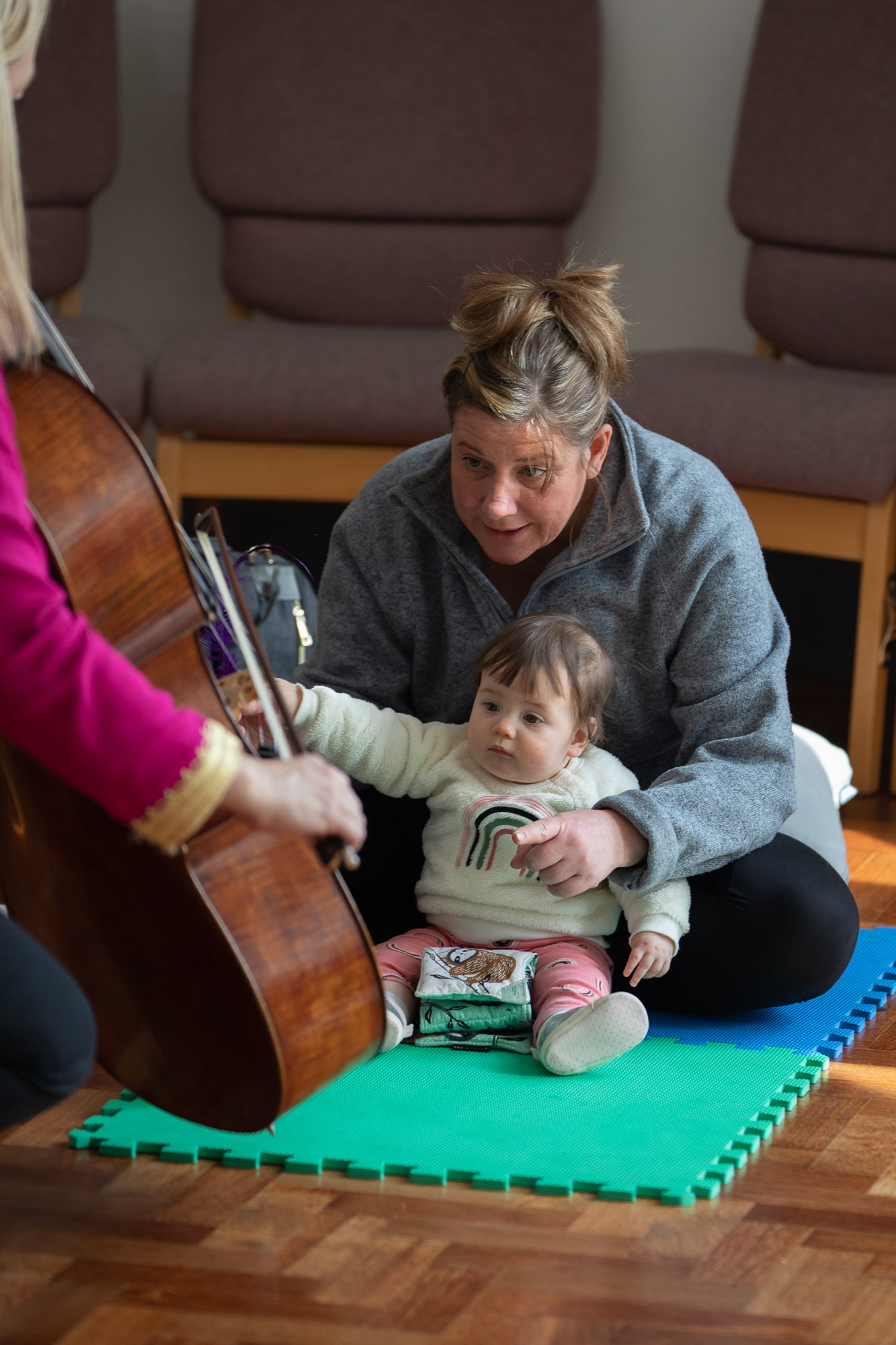
Sheffield music charity receives council funding to reach more diverse communities
A music producing charity has received funding from North Sheffield Local Area Committee to support the provision of free musical events for adults and babies from lower socio-economic backgrounds.
Concerteenies aims to connect professional musicians with young children and their grown ups to experience live music together. They achieved their registered charity status in 2023.
They have hosted a variety of family events in the past including concerts at The Leadmill to give parents the rare opportunity to go to gigs.
Founder of Concerteenies, Polly Ives said that the project “can lay the foundation of musical engagement.”
The fund will be used for the Concerteenies for Babies programme, with £1200 being granted to contribute to the costs of free access to music events for 38 new parents and babies in North Sheffield, in partnership with Sheffield Family Hubs.
A parent who attended a baby concert said: “Seeing my baby respond to live music, instrument and voice was breathtaking.”
The money comes from North Sheffield LAC’s Great North Fund which aims to develop the voluntary sector and support projects with a track record of supporting people in the North or offer a new approach to improving community lives.
Talking about the project, Polly said: “Music often gets bad press and is seen as either expensive, elitist or inaccessible."
She added that there is “a real gap in opportunities for adults with young children.”
The project worked with 80 musicians last year, going beyond nursery rhymes to highlight the importance of live music. They use a variation of music from different cultural backgrounds to give an eclectic style to the concerts.
Indian Sufi singer, Deepa Shakti said: “Every single audience member is important. When you play music to them, you’re trying to share something with them that they can take away which will make their day better.
“It is a privilege to perform to such a diverse audience."
Polly said that the grant is “hugely valuable”, particularly in how it will help them to reach more diverse communities, and create a greater impact by identifying needs in the local area
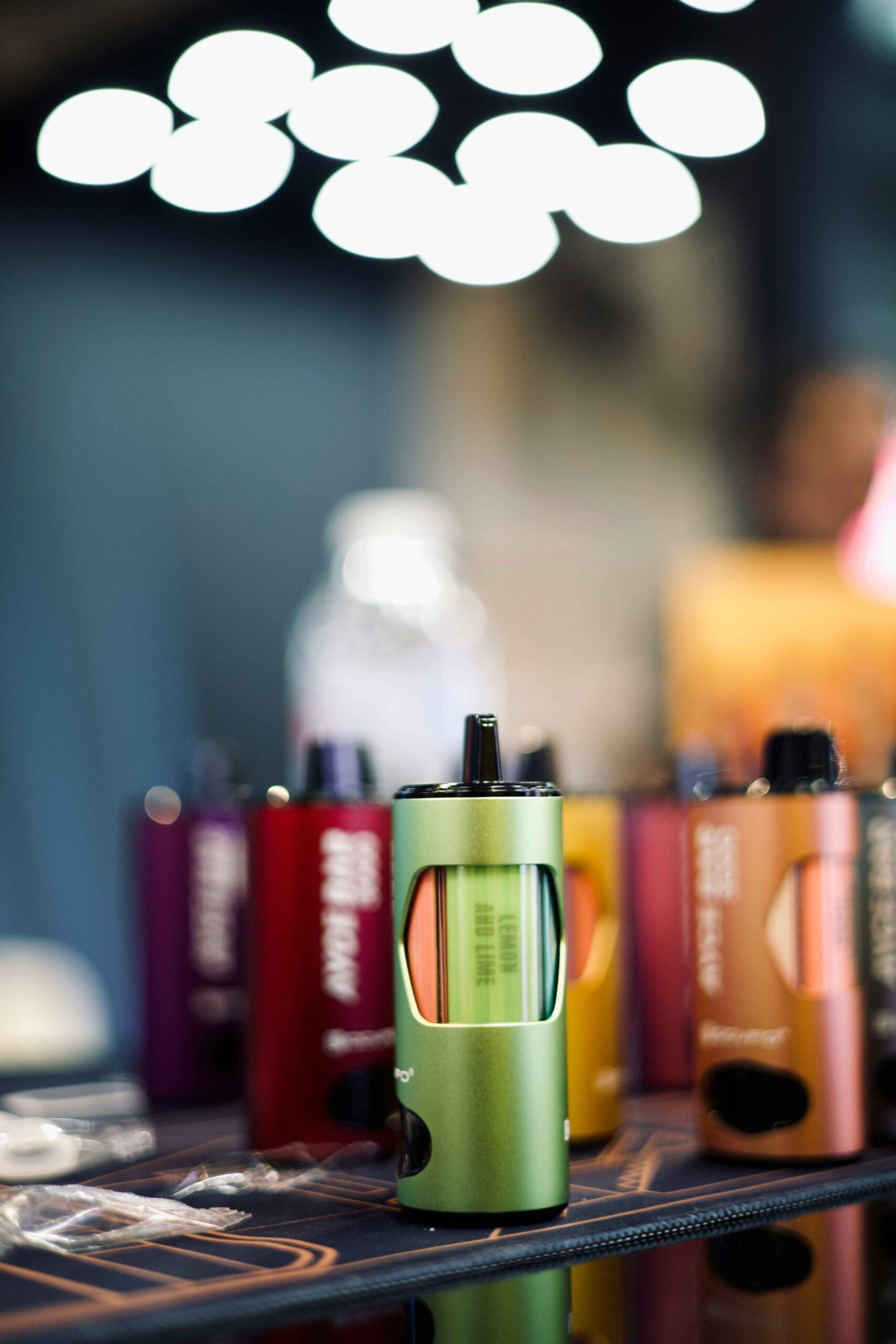
Sheffield’s vaping industry is going up in smoke
More people are quitting smoking in Sheffield than in any other major city, according to NHS records.
Out of every 100,000 smokers, 1,380 have successfully quit.
This data is from the NHS’ Statistics on Local Stop Smoking Services.
Sheffield trumps all other major cities, including Manchester and York, whose numbers stand at 263 and 483 respectively.
In parliament, MPs are showing support for plans to crack down on the smoking and vaping industry, with a new bill seeking to make it illegal for anyone who is currently aged fifteen or younger to ever purchase cigarettes in the UK.
There will also be actions aimed specifically at tackling youth vaping.
The vaping industry has been under scrutiny for some time, particularly concerning the sale of products to minors.
Rob, store runner at MyCigara Vape Shop, says that an outright ban is not the solution. Instead, he believes that licenses should come into play.
He said: "The biggest problem that the vaping industry has at the moment is it’s unlicensed. Any shop can go to a wholesaler, buy vapes, and sell them. When you’ve got a market of independent traders who are just after that extra bit of revenue, they're majoratively the ones selling to underaged kids. "
Rob is an active vaper and believes that vaping is a safer alternative to cigarettes.
He says that he’s followed the WHO concerning the topic and recalls a report that vaping is up to 80% safer than cigarettes. According to Rob, vaping serves as the lesser of two evils for anyone who has trouble quitting cold turkey.
Regarding the developing bill, Health Secretary Wes Streeting has said that the bill will be “coming down on the vaping industry like a ton of bricks”.
When asked about a response to Mr Streeting’s comments, Rob said: "Pull your pants up and do it properly! They’re targeting the vape industry in an aggressive way, but not actually dealing with the problems. They’re not going to ban the import of [the vapes]. If you are going to ban the sale of them, don’t make it easy for the black market to get a hold of them."
In light of the NHS data, any restrictions on the sale of vapes are likely to put immense pressure on Sheffield’s small businesses within the industry.
When asked about a future where such a bill is passed, Rob was of a somewhat pessimistic view. He said: "It’s gonna be tough. The bigger companies are gonna be the ones that are going to be able to weather out that stormy period. But yeah, it’s gonna be rough."

History made in South Yorkshire as Town Halls raise Palestinian flag in solidarity
The Palestinian flag was raised for the first time today by several Town Halls in South Yorkshire on International Day of Solidarity with the Palestinian People.
The United Nations called for annual event in 1977 which is now recognised across the world.
Sheffield, Rotherham, Doncaster and Barnsley are flying the Palestinian flag after rising pressure from the public.
Julie Pearn, chair of Sheffield Labour Friends of Palestine, has called the day “historic in the current political context” after her request to Sheffield City Council to fly the flag was initially met with hesitation.
She said: “It is a triumph of popular organising and pressure which has forced reluctant leadership to take this moral and sound political step.”
Rotherham Metropolitan Borough Council was the first in South Yorkshire to agree to fly the flag.
The decision raised controversy as last year Rotherham and Sheffield flew the Israeli flag after Hamas’s attack on 7 October.
The flag was forcibly removed by activists and replaced with a Palestinian flag which led to Sheffield City Council adopting a new flag flying protocol.
Cllr Taiba Yasseen of Rotherham Council presented the largest petition in Rotherham’s history, with 4,031 signatures, calling for a permanent ceasefire in the region.
She said: “The Israeli flag was flown because an atrocity was committed, but the Palestinian flag has never been flown yet the atrocities continue to take place.”
Cllr Yasseen further outlined that “small” actions like this in Rotherham and South Yorkshire will contribute to pressure and influence for a permanent ceasefire and peace for the Palestinian people.
Dr Pearn added that she hopes the news of the action in South Yorkshire reaches Palestinians everywhere and lets them know that “we speak out on their behalf for justice, for an end to their oppression under Israeli apartheid, and for their freedom”.
